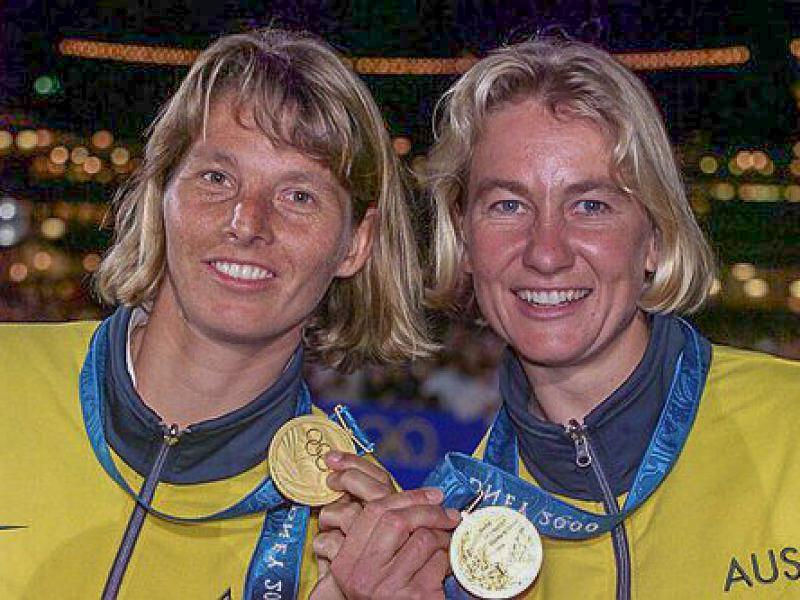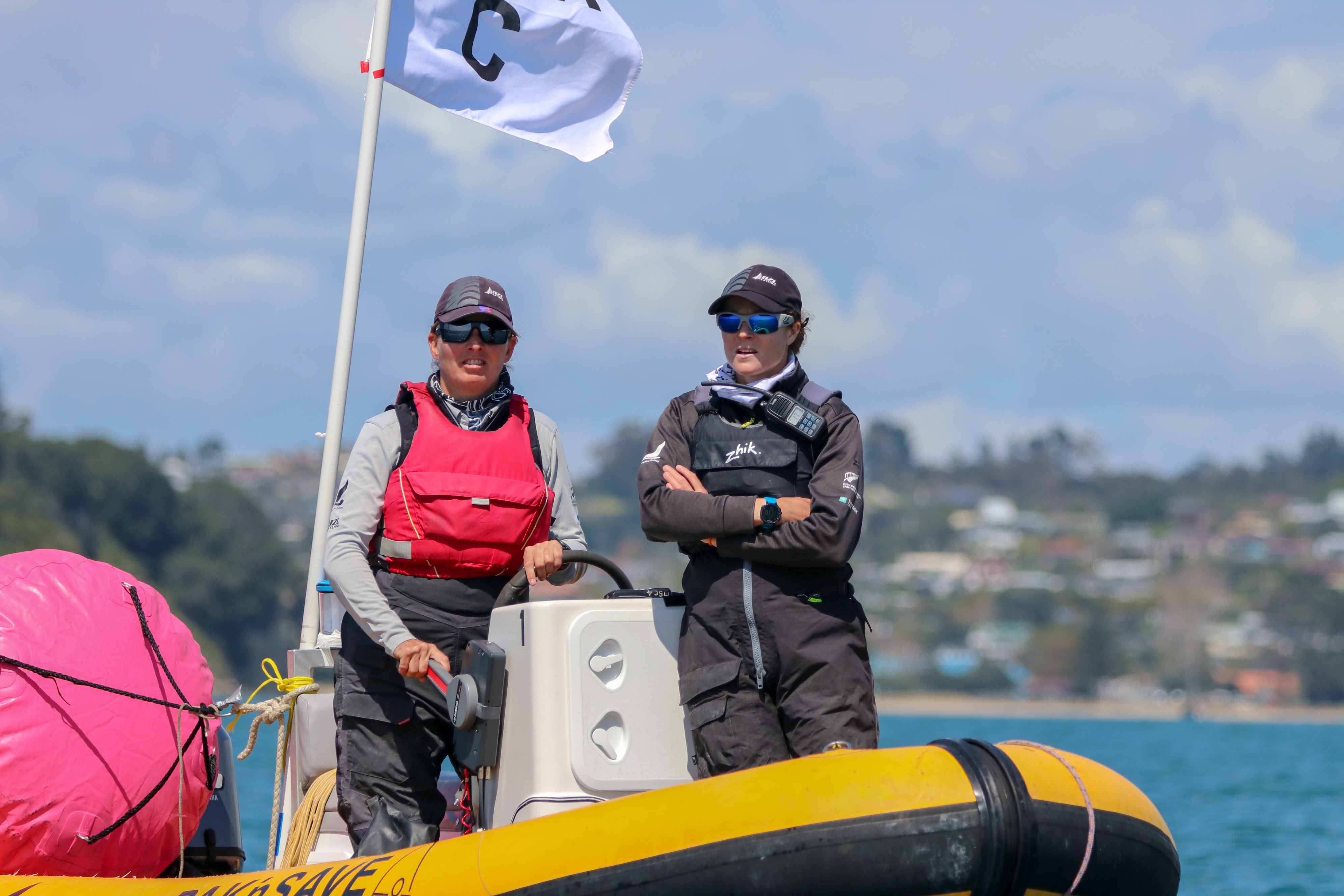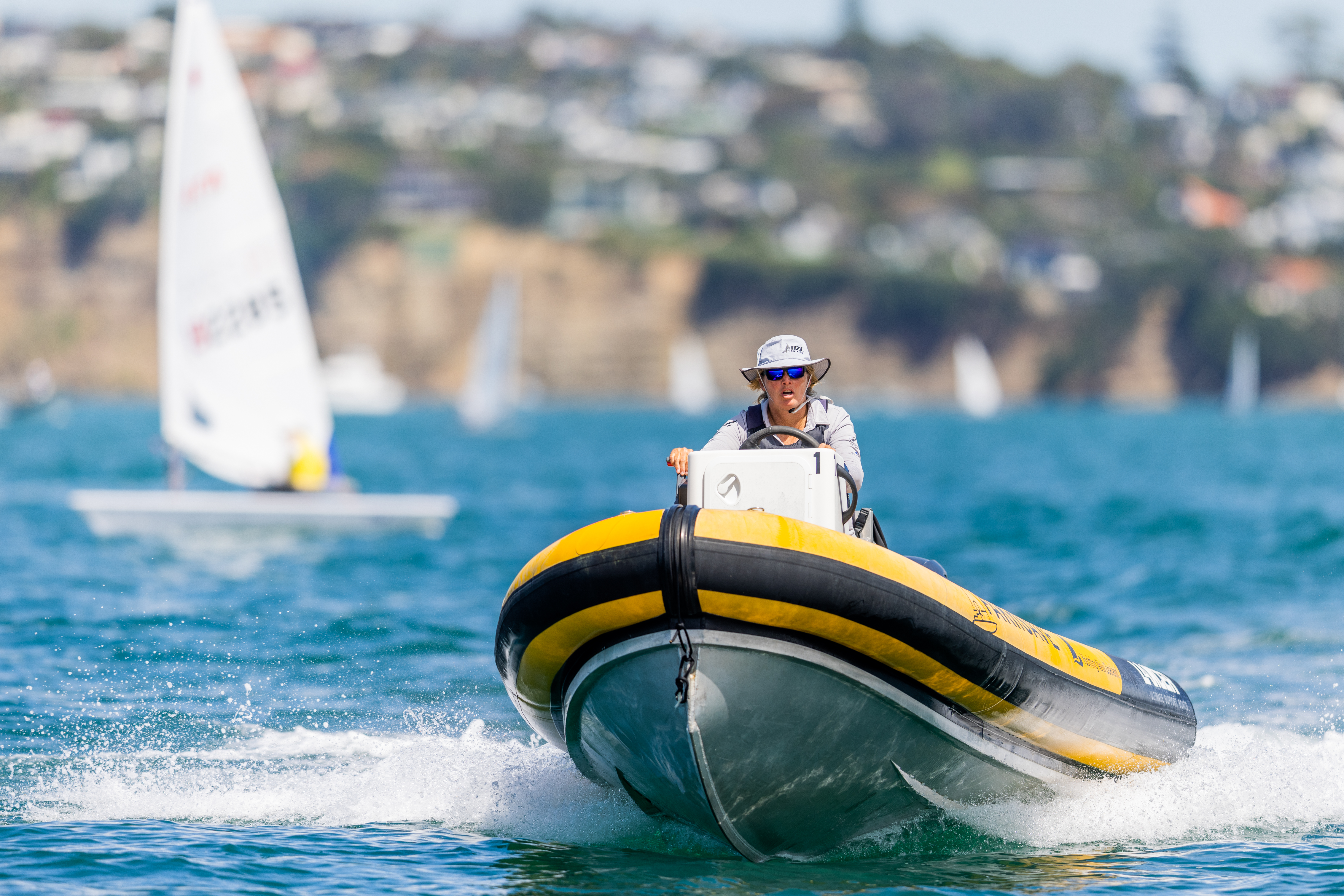Jenny Armstrong
Jenny Armstrong
- Coach Profile
When Jenny Armstrong was three days old her parents brought a boat for the family and named it “Jenny”.
What began was a life of sailing that has taken Armstrong all over the world and back to her beloved Dunedin where she now lives with her family.
“I guess my fate was sealed as a baby, that I was born to sail,” says the Sydney 2000 Olympic Champion in the 470 Class.
Armstrong is the Yachting New Zealand Women in Sailing Manager responsible for implementing the Women’s and Girls Sailing Strategy.
Her role based out of Dunedin has a variety of components including coaching a junior girl’s squad (both online and in person), one of the coaches in the youth programme (in the 420 double handed class), coach development facilitation and engagement of the youth and junior sailors throughout the country.
She’s busy but she loves sailing and the opportunity to make a difference.
“I love the coaching aspects,and a lot of my role is coordination.”
Armstrong was an occasional contract coach with Yachting NZ when she was approached to apply for the High Performance Sport New Zealand Te Hāpaitanga programme.
That started the conversation with the national body with Armstrong around her coaching future.
So, before the programme even started there was a positive impact for Armstrong and she says she got a great deal out of the programme meeting like-minded coaches and growing her support network.
“By the presentation at the end I realised I’d gone from being an athlete, to an athlete pretending to be a coach and then I’d transformed into a coach who was an athlete.”

By her own admission Armstrong was a “mid fleet youth” sailor who went onto the top of the Olympic podium attending three Olympic Games.
“My journey shows when I look at my junior and youth results that you just never know where your talent it going to come from.”
Following her fourth place at the 1992 Barcelona Olympics for her native country in the single-handed Europe class, Armstrong went on to miss selection for the 1996 Altana Olympics because she finished second in the national trials.
“Even though I was ranked number one in the world I didn’t get to go but in hindsight it taught me so much.”
Armstrong started doing some ocean sailing and was part of an all-women’s team that sailed from the United Kingdom to Cape Town.
One of her teammates on that journey was Australian Belinda Stowell who Armstrong found they shared similar values – goal orientated, ambitious and both had a big work ethic.
In Stowell and ultimately in the Australian Sailing Team, Armstrong had a partner to sail with at the Sydney Olympics.
“It was a no brainier for me to get Australian citizenship and it gave me the result I wanted.”
“I don’t regret it, but it would have been nice if it was for New Zealand!”
The team continued on to 2004 Athens Olympic Games to defend their title but finished fourteenth.

“Climbing to the top of the mountain we found was easier than staying there – we didn’t manage that as well as we could have.”
Armstrong retired after Athens and naturally fell into a coaching role doing some youth coaching in Sydney alongside working for a yacht charter company.
In the early days of her coaching she coached how she liked to be coached, realising quickly how much your own coaches influence you.
In her last two Olympic campaigns Armstrong says she was coached in quite a different style by her Ukrainian coach.
“We did learn a lot and we were successful but that style of coach doesn’t work for everyone. On reflection I know you can’t just coach the tippy top – you have to coach through the squad.”
Retention of sailors is one of Armstrong’s key goals not only for all sailors in the junior and youth programmes before they progress to the Olympic class but particularly for women and girls in sailing.
“We start with 30% participation of girls but at the top end we want 50% in the Olympic team – so every female sailor is super valuable.”
Because of the small numbers of sailors in regattas everyone will compete against each other, so the girls Armstrong says are always outnumbered.
“We’re really trying hard to help create great environments with a good group of girls that can move through the sport together. Building a passion and love for the sport is the key.”

Living in Dunedin, Armstrong is aware she’s also a voice for both the South Island and the regions within the national sporting organisation.
“In sailing traditionally, the athletes that have come from the regions have got an extra grit and determination so the talent is definitely out there. It’s worth spending the time on those who pop their head up.”
Whether it’s during online sessions or at regattas Armstrong gets satisfaction as a coach when she sees the sailors, she works with implement a new strategy or tools they’ve been working on.
“When they make the right decision in the moment and they pull it off regardless of the result it’s so great – it gives me goosebumps.”

Coaches Korero Quickfire
Why did you get into coaching?
It was a way to stay connected to sailing and earn some money.
Who inspired/inspires you as a coach and why?
During the Te Hāpaitanga Programme my mentor Raylene Bates introduced me to one of the YNZ Coaches, Mark Howard. Mark is a busy man but he’s been a constant for me having a sounding board and having someone to bounce things off knowing that he understands the environment.
What has been your biggest learning as a coach?
You can’t control everything! At the end of the day it’s the sailors that have to do it. As a coach you have to try and arm them with tools and hope that use them at the right time.
What are you most proud of as a coach?
It fills me with pride when I see what the sailors continue on to do after I finish coaching them.
What is the biggest challenge you have had as a coach?
As the only female coach at Yachting NZ, I’m often nearly always the only female in the room. Also, the challenge and opportunity to raise female participation in sailing.
How do you want to be remembered as a coach?
A coach who cares about the person first.